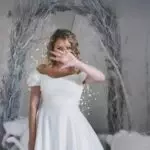Art therapy is one of the newer approaches to the treatment of depression. While the idea of using art as therapy isn’t exactly new, creative therapy only became officially recognized about 50 years ago.
What’s great about this type of therapy is its ability to identify and eliminate negative emotions and thoughts that are triggered due to depression. So, how exactly can art and creativity help with depression?

Types of art therapy
Art therapy has many different modes. It can be conducted in an individual or group setting and it can include drawing, painting and sculpting as well as dance or movement, music and acting. What these types of creative therapy have in common is their ability to allow people to express their emotions and get in touch with their inner selves. When performed in controlled environments, these art forms can be very beneficial in depression treatment.
Art as a form of self-expression
The biggest advantage of art therapy is its ability to provide people with a way to express themselves. Depression can be deeply isolating and painful and it can completely devoid people of their ability to feel and express emotions. It takes away your ability to vocalize your suffering and communicate with people in a healthy way. In one word, depression equals destruction—it destroys who you really are!
Therapy helps with reclaiming your voice, but for many people, opening up to a stranger and telling them their darkest fears and emotions can be very hard. However, thought art therapy, we don’t have to use our words and communicate in a traditional way. Grabbing a piece of paper or a lump of clay is less scary than sitting face to face with a therapist and talking about the things you fear the most. However, even if you don’t use words, all the scribbles and colors you put on paper can allow you to release your depressing thoughts. Just because you didn’t exchange words, it doesn’t mean you didn’t communicate.
Art helps reclaim your emotions
While art can help you create a bridge between you and your therapist, it can also actually provide you with a way to accept and reclaim your emotions. Depression often leaves people feeling empty, numb and distant and through art, you can encourage your capacity to feel again as well as express your feelings. You don’t need much to create art, so forget about fancy easels and expensive paints. All you need is a quality permanent marker and some paper and you’re ready to express your emotions. These can be used on all kinds of surfaces, so you’ll always have a tool at hand that will give you an outlet for your feelings. Once you transfer your feelings onto a surface or express it with a song or movement, you might feel like a weight got lifted from your shoulders—that’s the best feeling in the world for someone with depression.
Art allows you to create your own happiness
When people observe, hear or create something that’s beautiful, the brain releases dopamine which is responsible for the feelings of reward, motivation, memory and attention. Additionally, the brain activity of someone looking at art is very similar to someone feeling love! So, besides creating something beautiful and unique, you can also be blessed with many positive feelings of happiness.
Art therapy goes hand-in-hand with other treatment
Even though it has many benefits, art therapy can’t be used alone. It works best when it’s incorporated with some other therapeutic interventions so that it can create a more complete treatment for depression sufferers. Art therapy also won’t cure your mental health all of a sudden. Rather, it’s used as an instrument that can help you guide your wellbeing and promote healthier mental health habits. It’s not a universal remedy for your depression and it can’t be used as one either.
Research does show that art therapy is a very beneficial method of battling depression and it helps with a wide spectrum of different people and different personalities. In this field of therapy, specialists can really create miracles! They have a hard task to encourage someone to approach, identify, express, manage and overcome their depression which is very hard to achieve. Many people even discover they have a talent or passion for art they never even knew they had before they tried to express their feelings through it which is another gift you can receive during art therapy!













